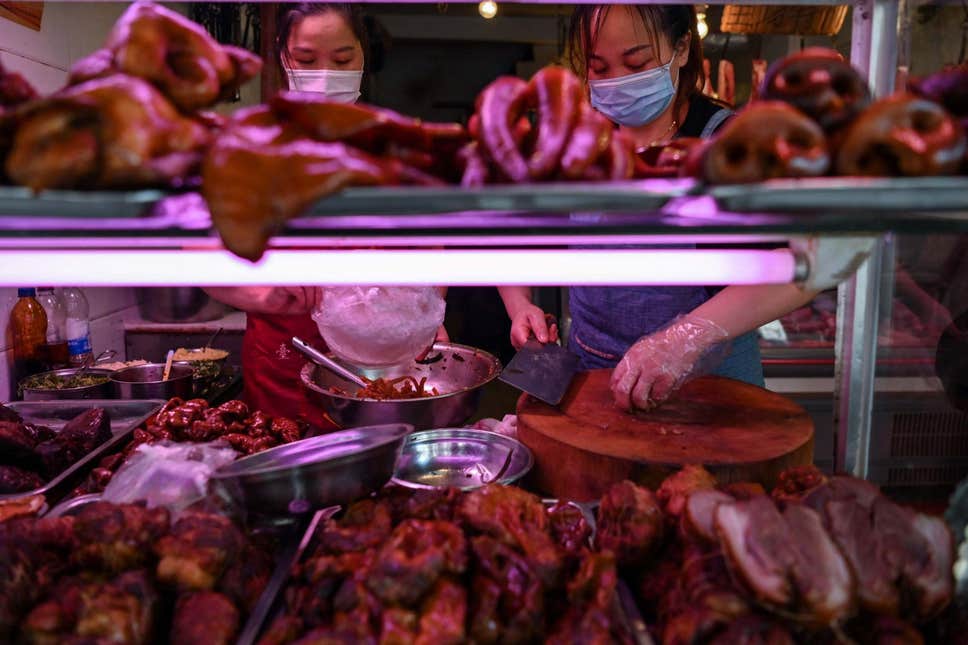Published
6 years agoon
By
GhMedia Hub
Authorities in Wuhan, the epicenter of the coronavirus pandemic, have officially banned the eating of all wild animals, it was announced today.
The local administration in the Chinese city said on Wednesday that along with the consumption ban, Wuhan would become a “wildlife sanctuary” where virtually all hunting of wild animals was banned with the exception of measures for ”scientific research, population regulation, monitoring of epidemic diseases and other special circumstances”.
As part of the ban, the city introduced stringent controls on the breeding of all wild animals, prohibiting any to be reared for food, CBS reported. Wuhan will also join a wider scheme across the country to offer buyouts to farmers who breed wild animals.
Wuhan, a city of 11m people in the Hubei province of China, saw the first cases of Covid-19 late last year.
The origins of the pandemic are still being investigated but one of the suspected sources is the Huanan Seafood Wholesale Market in the city which included a live animal section reportedly selling more than 30 species of animals including live wolf pups, golden cicadas, scorpions and civets. China closed the market in January.
On the whole, researchers agree that the most plausible explanation is that the virus made the jump from an animal to human in a “zoonotic spillover” event.
China has been under pressure from the global community to tackle its illegal wildlife trade after it was linked to the emergence of zoonotic diseases.
The global death toll is now 318,789 people from the coronavirus, the World Health Organisation reported today. More than 4.7m people have been infected worldwide.
Last week, two central provinces in China announced plans for a government buy-out for wildlife farmers to help transition those whose livelihoods depend on breeding wild species for consumption away from the practice.
The plans would give wildlife farmers in Hunan and Jiangxi provinces, two neighbouring regions, the opportunity to be compensated for switching to grow fruit, vegetables, tea plants, or herbs for traditional Chinese medicine. There is also an option to breed other animals such as pigs and chickens.
In February, China issued an unprecedented temporary nationwide ban on all terrestrial wild animal commerce and consumption, including exotic species raised on farms.
The initial buy-out covers 14 species of farmed wildlife and only farms operating legally with breeding permits before the February ban are eligible for the programme.
At present, the Wuhan ban lasts for five years. Similar bans are in place in the cities of Beijing, Shenzhen and Zhuhai but they have been made permanent.
Dr Peter Li, Humane Society International’s China policy specialist, said: “Wuhan’s ban on wildlife consumption is extremely welcome as a clear recognition that the public health risk of zoonotic disease spread via the wildlife trade must be taken very seriously if we are to avoid another pandemic.
“There will however be no less severe of a disease risk from wildlife consumption in five years’ time, so anything short of a permanent and comprehensive ban is still a risk too far. Wuhan becomes the fourth city in mainland China to show such leadership, but we now need cities and countries across the world to step up to the plate and shut down the dangerous wildlife trade.”
source: independent.co.uk
